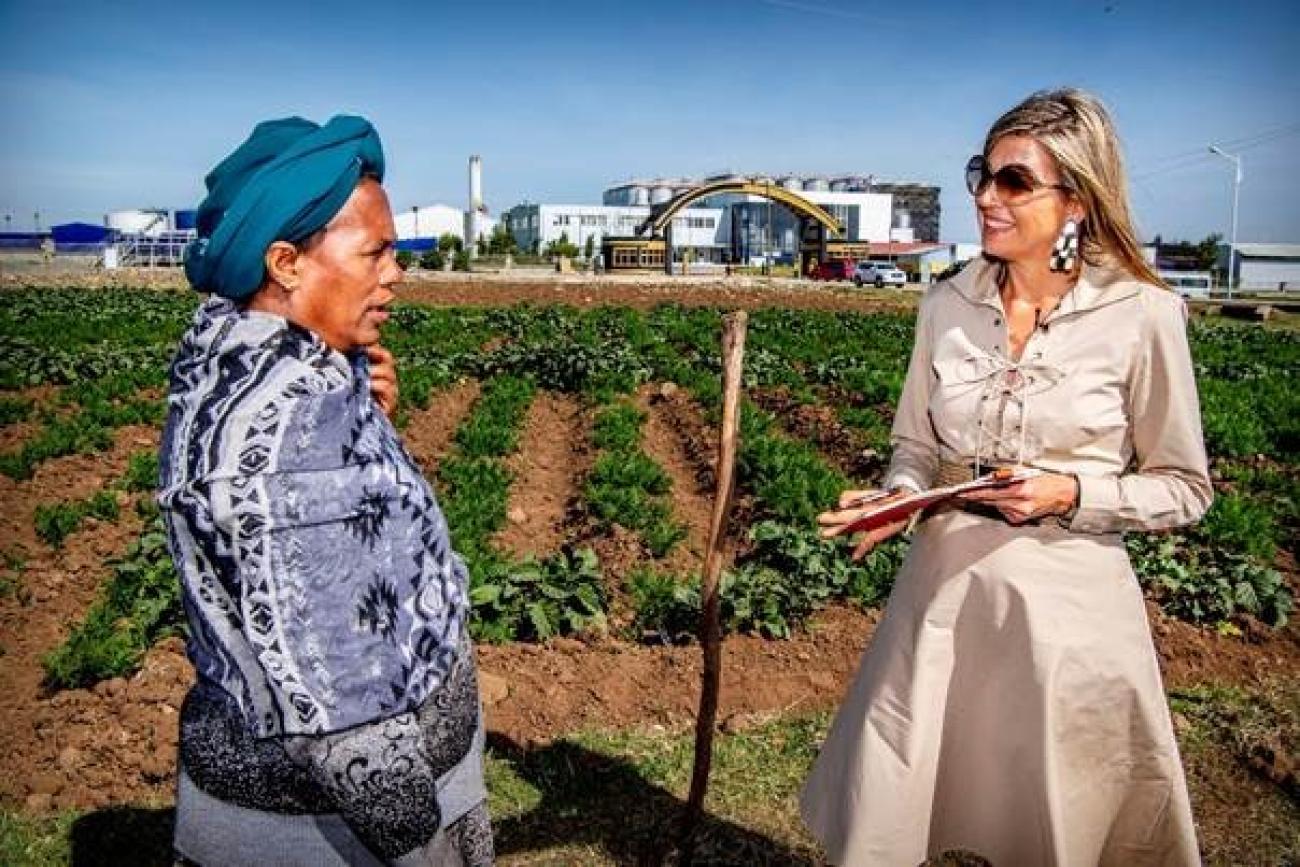Her Majesty Queen Máxima of the Netherlands, United Nations Secretary-General’s Special Advocate for Inclusive Finance for Development (UNSGSA), has concluded her visit to Ethiopia where she viewed the nation’s financial inclusion progress firsthand this week.
Financial inclusion seeks to unlock economic opportunity for all—especially the poor, women and rural communities—by expanding access to financial services. Affordable, effective, and safe financial services can play a powerful role in fostering equitable growth and furthering development goals such as poverty reduction, job growth, gender equality, and food security.
Ethiopia experienced a rise in financial inclusion in recent years, from 22% in 2014 to 35% in 2017, according to the World Bank’s 2017 Global Findex. Still, as noted in the Findex, approximately 65% of adults in Ethiopia struggle to get by without the basic financial services needed to protect themselves against hardship and invest in their futures. Globally, it is estimated 1.7 billion people are excluded financially.
During her visit, Queen Máxima held meetings with President of Ethiopia, Sahle-Work Zewde, and Prime Minister Dr. Abiy Ahmed, along with other key government officials, including Ahmed Shide, Minister of Finance, Dr. Getahun Mekuria, Minister of Innovation and Technology, and Dr. Yinager Dessie, Governor of the National Bank of Ethiopia. She also met private sector members and other decision makers.
The UNSGSA discussed how to embrace financial inclusion as a priority in Ethiopia—along with additional reforms financial inclusion enables to help achieve the UN Sustainable Development Goals (SDGs).
Queen Máxima also highlighted that the prioritization and sequencing of Ethiopia’s national financial inclusion strategy actions could be beneficial. This included an increased focus on leveraging digital financial services to achieve the SDGs, as well as heightened attention on reaching women and the rural population.
Ethiopian women account for a disproportionate share of the unbanked—only 29% have an account compared to 41% of men. This gap has increased since 2014 when account ownership was nearly even, with 23% of men and 21% of women having an account, according to the Findex.
In her meetings, the UNSGSA also supported conducive regulations to improve connectivity and the roll-out of national identification with adequate data protection and legal framework. Further, she said private sector members could help lead in creating innovative solutions with a strong business case—there can be good business opportunities in designing customer-centric products, including for women, for example.
Additionally, in Addis Ababa, Queen Máxima met with people using financial technology products to improve their lives. Digital technology represents one of the best opportunities to expand financial inclusion in Ethiopia. However, as the UNSGSA observed, this could require opening the country’s regulatory framework to allow non-bank actors to enter the financial sector, improve connectivity, and shift from cash to digital payments.
The UNSGSA also traveled to Habesha Breweries in Debre Berhan to learn how the company worked with smallholder farmers to improve their businesses through trainings, pre-financing cooperatives that provide them with high-quality seeds and fertilizer, as well as guaranteeing farmers a buyer for their grain.
Queen Máxima also visited Ethiopia in December 2013 in her UNSGSA role.
Looking ahead, together with her partners, the UNSGSA will continue to work with Ethiopia to advance financial inclusion.
ABOUT THE UNSGSA
As the United Nations Secretary-General’s Special Advocate for Inclusive Finance for Development (UNSGSA), Her Majesty Queen Máxima of the Netherlands champions universal access to affordable, effective, and safe financial services. Collaborating closely with global and national partners, she raises awareness, encourages leadership, works to break down barriers, and supports action to expand financial inclusion. For more information, visit www.unsgsa.org.







